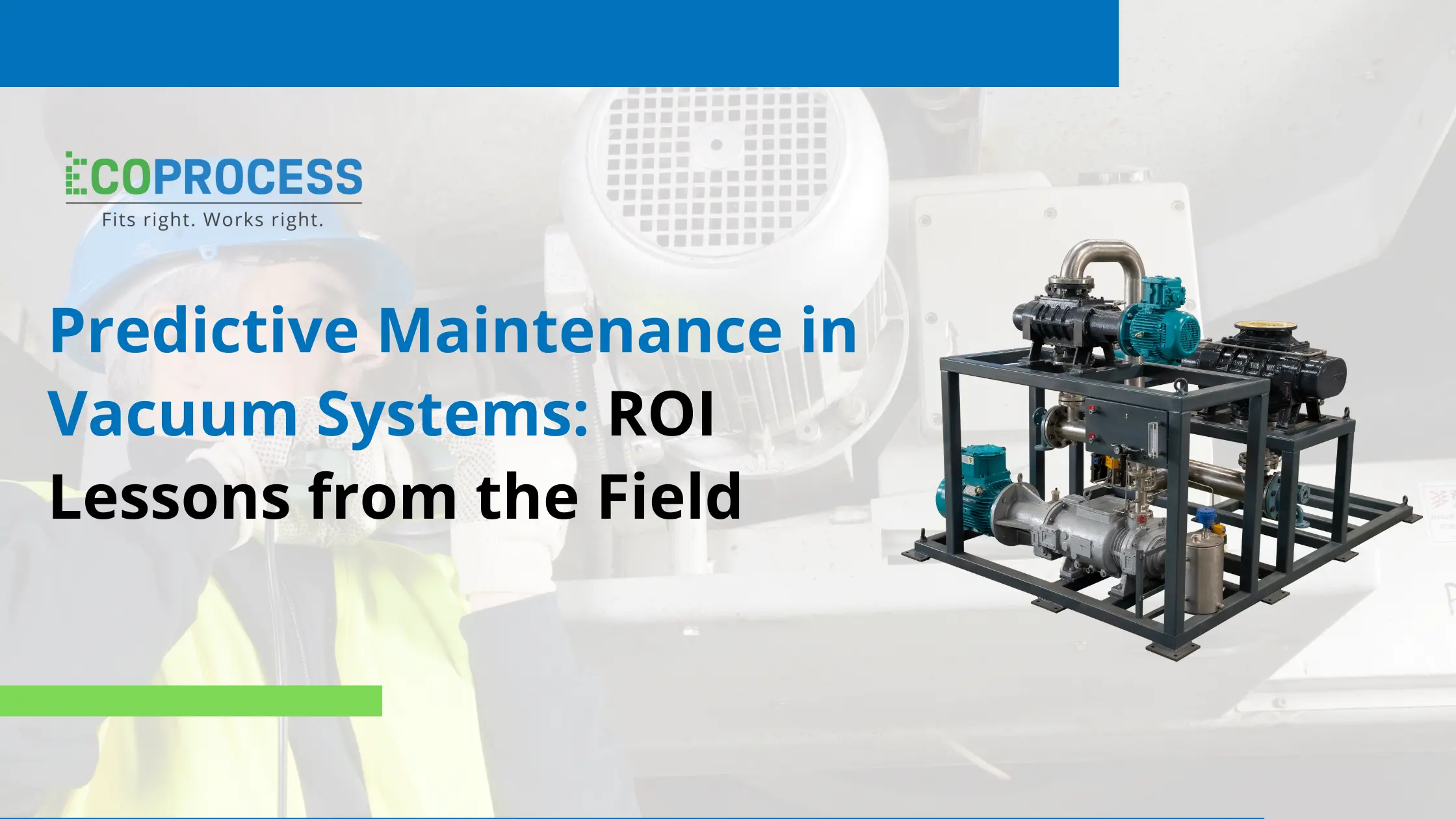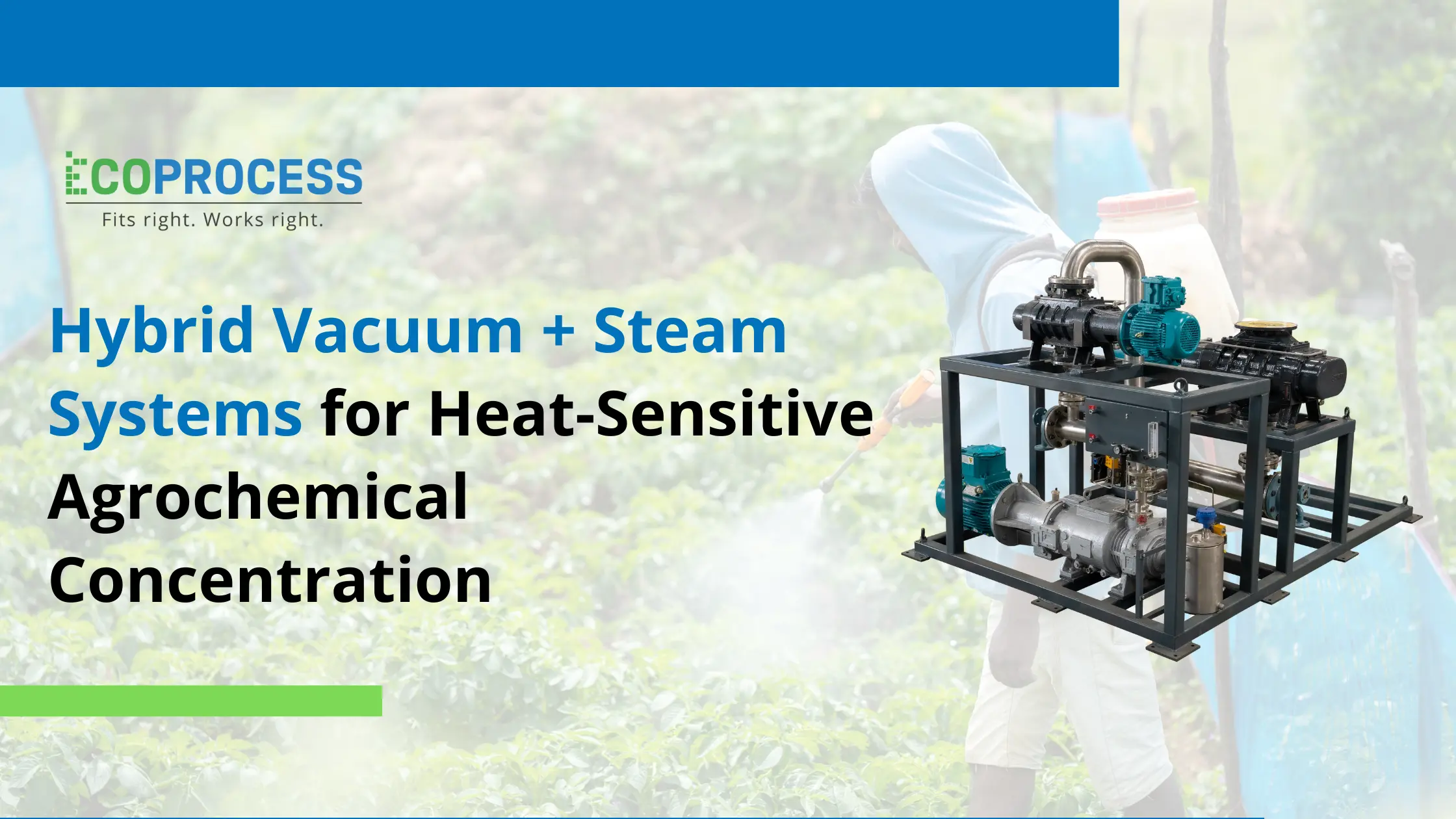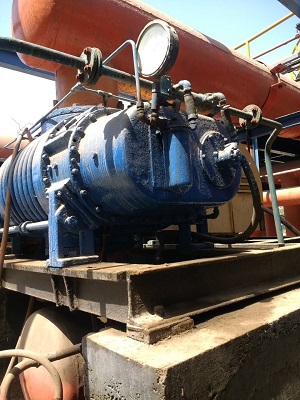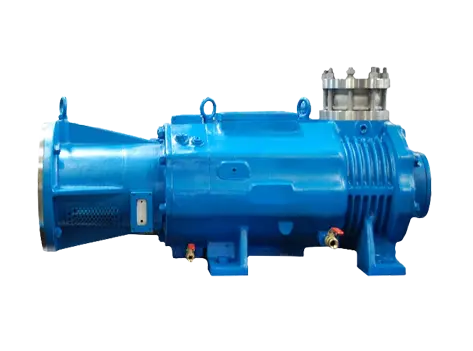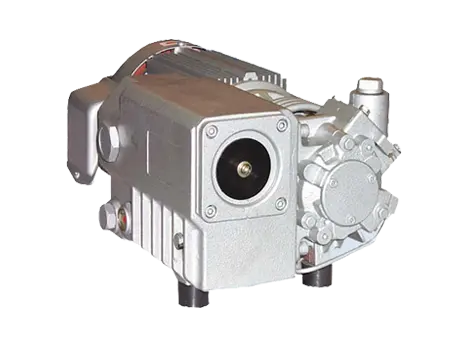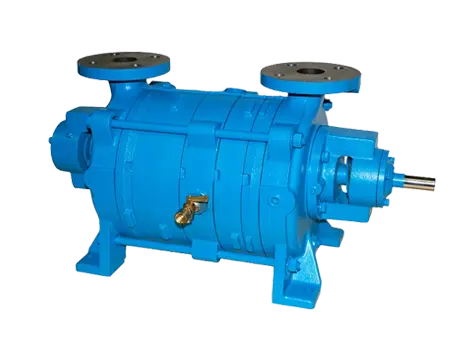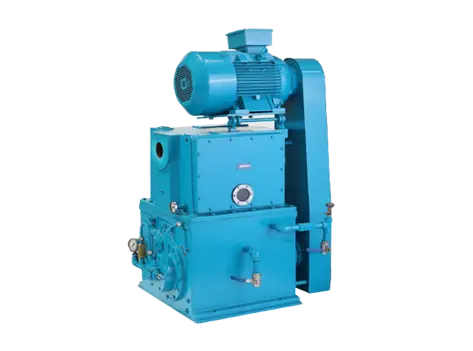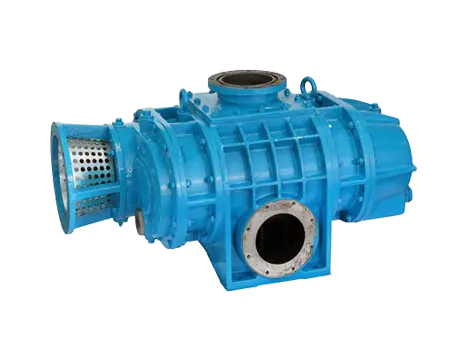
Applications of Liquid Ring Vacuum Pumps and Advantages
Liquid ring vacuum pumps (LRVPs) might seem like a niche topic, but for process engineers, understanding them is paramount. As various industries expand and adapt, the relevance and utilization of these pumps have surged. In this blog, we will delve into the inner workings of LRVPs, their advantages, and their various applications, underlining their significance in today’s industrial landscape.
What are Liquid Ring Vacuum Pumps?
A liquid ring vacuum pump is a type of positive displacement pump that operates by using a liquid ring to create a vacuum. The basic functioning of these pumps revolves around the principle of eccentrically-located impellers. These impellers, which are typically made of stainless steel, are placed off-center within the pump casing. As the impellers rotate, the liquid ring formed inside the pump casing also rotates due to centrifugal force.
The liquid ring acts as a sealant and a working medium, ensuring the efficient functioning of the pump. The liquid ring also helps in dissipating the heat generated during the compression process. As the impellers rotate, the eccentricity of their position causes the volume between the impeller blades to change. This change in volume leads to the compression and expansion of the gas or vapor being pumped, ultimately creating the desired vacuum conditions.
Advantages of Liquid Ring Vacuum Pumps
Versatility in Applications
One of the key advantages of liquid ring vacuum pumps is their versatility in applications. These pumps can be used for both vacuum and compression jobs, making them suitable for a wide range of industries. From pharmaceuticals to food processing, chemical plants to power generation, liquid ring vacuum pumps find their applications in diverse sectors. Their popularity across various industries is a testament to their efficiency and reliability.
For vacuum applications, liquid ring vacuum pumps are used to remove gases and vapors from a system, creating a vacuum that enables various processes such as distillation, dehydration, and drying. On the other hand, for compression jobs, these pumps are used to compress gases and vapors, providing the necessary pressure for processes like gas circulation, vapor recovery, and solvent recovery. The ability of liquid ring vacuum pumps to cater to both vacuum and compression needs makes them an essential tool for process engineers.
Handling of Particulates and Impurities
Another significant advantage of liquid ring vacuum pumps is their capability to handle particulates and impurities. These pumps excel in applications where there is a concern for contamination or the presence of caustic substances. The working principle of liquid ring vacuum pumps involves the use of a liquid ring, which serves as a medium for diluting and discharging particulates, impurities, and caustic substances with the fluid.
When the liquid ring rotates, it entrains the particulates and impurities present in the system. The fluid flow then carries these contaminants out of the pump, effectively removing them from the process. This feature makes liquid ring vacuum pumps highly useful in industries where the purity and cleanliness of the products or processes are of utmost importance, such as pharmaceutical manufacturing, food processing, and chemical production.
No Metal-to-Metal Friction
One of the most notable advantages of liquid ring vacuum pumps is the absence of metal-to-metal friction. Unlike other types of pumps that rely on mechanical seals or sliding vanes, liquid ring vacuum pumps run on a liquid ring, eliminating the need for metal components to come into direct contact with each other. This attribute not only reduces the wear and tear of the pump but also ensures a longer lifespan and minimal maintenance requirements.
The lack of metal-to-metal friction also contributes to the silent operation of liquid ring vacuum pumps. These pumps are known for their relatively quiet operation, making them suitable for environments where noise pollution is a concern. Additionally, the absence of frictional contact between metal components reduces the risk of heat generation, thereby improving the overall efficiency of the pump.
Reliability and Durability
One of the key advantages of liquid ring vacuum pumps is their robust construction and design. These pumps are built to withstand the rigors of demanding industrial environments, making them highly reliable in continuous operation. The casing and impeller of liquid ring vacuum pumps are typically made from sturdy materials such as cast iron or stainless steel, ensuring durability and resistance to corrosion.
Furthermore, the unique design of liquid ring vacuum pumps allows them to tolerate liquid carryover, which can occur in applications where liquids are present in the process or where condensation occurs. The liquid ring created by the sealing medium acts as a barrier to prevent the ingress of any contaminants into the pump. This makes liquid ring vacuum pumps especially suitable for applications where there is a risk of liquid carryover, such as in the chemical, pharmaceutical, and food processing industries.
Additionally, liquid ring vacuum pumps are known for their ability to handle a wide range of gases and vapors, including corrosive and explosive substances. Their robust construction ensures that they can operate reliably even in harsh environments, making them a preferred choice for industries that require vacuum systems for critical processes.
Safe and Environmentally Friendly Operation
Another significant advantage of liquid ring vacuum pumps is their safe and environmentally friendly operation. Unlike other types of vacuum pumps that rely on oil lubrication, liquid ring vacuum pumps use water or other compatible liquids as the sealing medium. This eliminates the need for oil, reducing the risk of oil leaks or contamination.
The use of water as the sealing medium in liquid ring vacuum pumps also has environmental benefits. Water is a readily available and non-toxic substance, making it a safer option compared to oil. The absence of oil lubrication not only reduces the risk of environmental pollution but also simplifies maintenance and reduces the overall operating costs.
Furthermore, liquid ring vacuum pumps operate with low noise levels, contributing to a safer and more comfortable working environment for operators. The absence of oil lubrication also eliminates the need for oil changes and disposal, reducing the overall environmental impact of the vacuum system.
Applications of Liquid Ring Vacuum Pumps
Liquid ring vacuum pumps find applications in a wide range of industries due to their reliability, durability, and safe operation. One of the primary industries where these pumps are commonly used is the chemical industry. In chemical processing, liquid ring vacuum pumps are utilized for distillation, evaporation, and drying processes. Their ability to handle corrosive gases and liquids makes them indispensable in this industry.
The pharmaceutical industry is another sector that benefits greatly from the use of liquid ring vacuum pumps. These pumps are used for various applications in pharmaceutical manufacturing, including vacuum drying, filtration, and solvent recovery. The ability of liquid ring vacuum pumps to provide a safe and contamination-free vacuum environment is crucial in pharmaceutical production, where strict quality standards must be met.
In the food processing industry, liquid ring vacuum pumps are widely used for vacuum packaging, freeze drying, and deaeration processes. The food industry requires vacuum systems that can handle moisture and liquid carryover, making liquid ring vacuum pumps an ideal choice. Their robust construction and ability to handle both gases and liquids make them suitable for the demanding conditions of food processing.
Other industries that commonly employ liquid ring vacuum pumps include oil and gas, power generation, pulp and paper, and wastewater treatment. In the oil and gas industry, these pumps are used for vapor recovery, crude oil vacuum distillation, and gas compression. In power generation, liquid ring vacuum pumps are used for steam turbine condenser evacuation and air extraction. In the pulp and paper industry, they are used for dewatering processes and vacuum forming. And in wastewater treatment, liquid ring vacuum pumps play a crucial role in the removal of excess water and the treatment of effluent.
Overall, the advantages of liquid ring vacuum pumps make them a preferred choice for numerous industrial applications. Their reliability, durability, safe operation, and versatility make them indispensable in industries that require vacuum systems for critical processes. Whether it is in chemical processing, pharmaceutical manufacturing, food processing, or other industries, liquid ring vacuum pumps offer a robust and efficient solution for achieving the desired vacuum levels while ensuring environmental sustainability.
Liquid ring vacuum pumps are indispensable tools for process engineers, offering versatile applications, the ability to handle particulates and impurities, and the advantage of running on a liquid ring without metal-to-metal friction. Understanding the functioning, advantages, and applications of these pumps is crucial for process engineers to make informed decisions and ensure optimal performance in their respective industries. With their reliability, efficiency, and ability to create vacuum conditions, liquid ring vacuum pumps continue to be a valuable asset in various sectors, contributing to the advancement of industrial processes.
